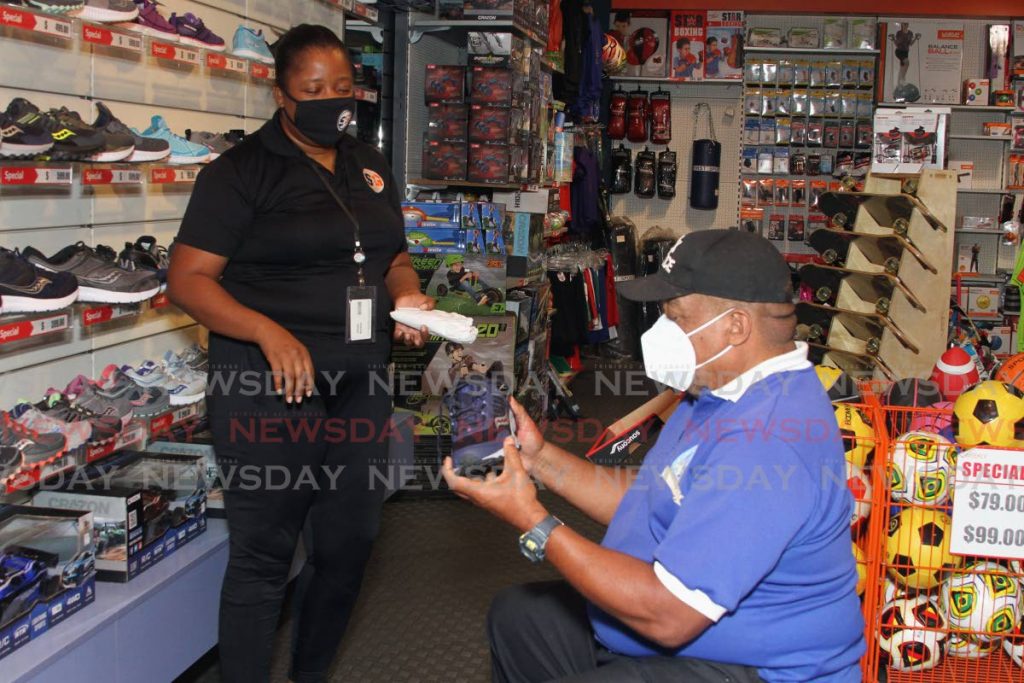Covid19 mitigation strategy and management prerogative

We have been on lockdown for the past two months and I’m sure that by now, most businesses and workers are anxious to get back to the grind. Workers are now quite eager to start earning their full pay and businesses want to start rebuilding. We even have a Road Map to Recovery team, establishing a way to help us to do so successfully.
We are now in the reopening phase, and the Government has been advising us to continue social precautionary measures such as wearing masks in all public spaces, physical distancing, staying home when ill and the adoption of personal protective measures such as hand hygiene, respiratory etiquette, etc.
Our new normal is now in full effect and will remain this way for a while. These measures are for the safety of the citizens, including workers, by attempting to reduce the spread of the virus and minimising the real possibility of any potential second wave upon reopening our economic and social activities. It is now incumbent on business managers to ensure that their respective companies take all reasonable steps to ensure the success of the nationwide mitigation strategy.
There is no legal requirement with regard to wearing masks under the Public Health Regulations 2020. However, it is a significant part of the guidelines for the reopening of businesses, facilities and institutions established and released by the Ministry of Health. The fact that there is no mask wearing law offers no excuse to ignore this guideline. Business organisations must ensure that they are not only part of the mitigation process but also that they do not contribute to the creation of hotspots which will surely bring about regression and a second stay at home order being put into effect.
On a positive note, I noticed many businesses, including a few of my own clients, displaying and enforcing “no masks, no entry or no service”. They also have hand washing or sanitising notices, as well as stations for customers to use before entering.
The stipulation for workers to wear masks at work is therefore an attempt to protect their fellow workers and themselves. If we are requiring the public to help contain the spread, then would we (the businesses, including the workers) have a requirement to lead by example? Therefore, what is management to do when workers are openly not complying with the new expectation, or persistently presenting excuses for circumventing it?
In 2013, Deborah Thomas-Felix, president of the Industrial Court of TT, talked about the management prerogative in an address to the ECA/ESC conference. She offered that management prerogative is the right and unqualified authority which resides with employers and management to exercise their discretion in certain areas of decision-making in the business, with or without the agreement of a third party. She went on to state that management prerogatives include the right to hire, promote, suspend or dismiss employees, the right to direct the work of employees and the right to establish policy.
The simple answer therefore is to amend the company’s health and safety policy to include all new measures needed in an effort to protect the well-being of all staff and company stakeholders.
Such a policy will not only guide management and workers where there is non-compliance, but should also make provisions for genuine health issues. For example, some people may genuinely suffer from claustrophobia. Allowances will have to be made for such instances where circumstances exist. Management must be guided by the fundamental protection of basic human rights and the rights of workers' well-being, both individually and collectively.
Therefore, at this time provisions might be made for work-from-home, reduced office hours or temporary change of job function, where the wearing of masks is a tested/approved general health issue for particular workers. There must always be a balance between the management prerogative, social obligation and individual rights.
Special provisions will also have to be considered for the “at risk” groups, those who have health complications and find themselves in the high risk category. Such workers will have to be included in providing an alternative arrangement that not only keep them employed but also to keep them safe.
It is therefore management’s duty to provide clear instructions or training for employees on general health and safety protocols for our new normal, including proper sanitisation methods, maintaining mask hygiene, hand washing and social distancing. The consequences for violations must also be made clear.
In the absence of any OSHA or public health ordinance that specifically mandates under law safety in the workplace that deal with what to do during an epidemic, then it is management’s prerogative to create company policy and ensure compliance. This should support their effort to ensure social responsibility which will no doubt add to the value of the company’s brand. It is all about management’s prerogative, ruling with compassion, empathy and fairness.


Comments
"Covid19 mitigation strategy and management prerogative"